Compulsives may be wondering whether it was coincidence that Bedlam, Channel 4’s new four-part documentary following the work of the Bethlem Royal Hospital, reached our screens in the same week that the same channel’s Obsessive Compulsive Cleaners returned for a second series. The channel’s own internal debate as to whether it’s out to entertain or enlighten us has clearly not gone away. Then there was ITV’s hour on OCD Ward on Monday as well, dealing with many of the same issues as Bedlam, no less seriously, this time at Springfield University Hospital. Springfield can’t be far away from the area of South London that's home to Bethlem, Europe’s oldest mental health facility, now known as South London and Maudsley - or “SLaM”, perhaps not the world’s gentlest acronym (its gracious if forbidding façade pictured below right). Given such institutions' accustomed reticence to television scrutiny, a lot of doors were suddenly being thrown open.
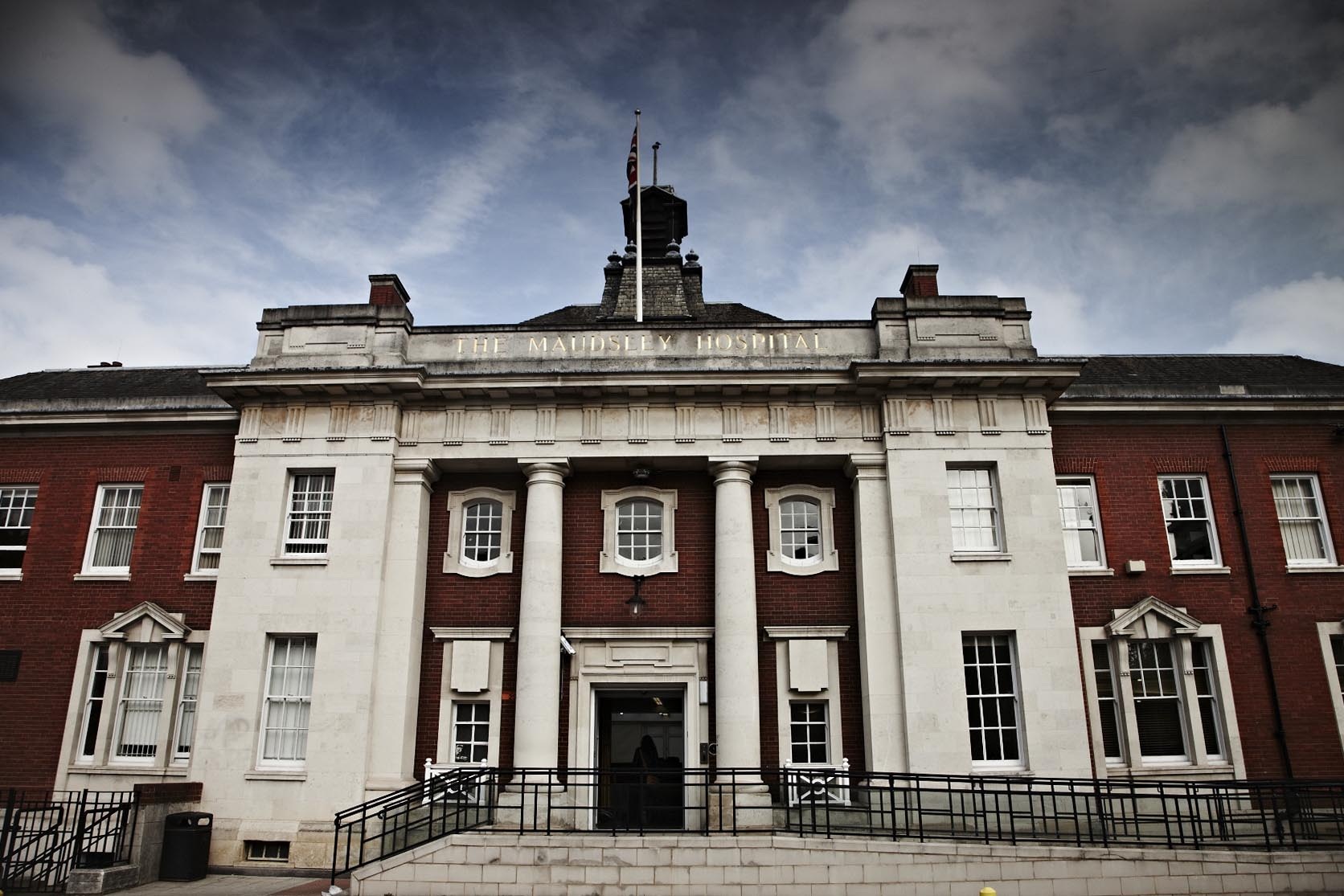 The theme of Bedlam’s opening episode was “Anxiety”, a subject all of us grapple with to varying degrees - “madness creeps in little by little,” as one of the participants said. Director Dave Nath’s film allowed us to look over the shoulders of four in-patients going through an intensive 12-week course that was trying to help them get the better of their many demons. The film presumably hadn’t decided in advance which of its subjects would receive the most attention, leaving (we assume) hours spent following directions that weren’t pursued, though that left something of a sense of uneven balance.
The theme of Bedlam’s opening episode was “Anxiety”, a subject all of us grapple with to varying degrees - “madness creeps in little by little,” as one of the participants said. Director Dave Nath’s film allowed us to look over the shoulders of four in-patients going through an intensive 12-week course that was trying to help them get the better of their many demons. The film presumably hadn’t decided in advance which of its subjects would receive the most attention, leaving (we assume) hours spent following directions that weren’t pursued, though that left something of a sense of uneven balance.
The story of James (main picture, above) dominated from the opening question, “What does the toilet mean to you?” Something between enemy and torture, was the answer from this jumble-of-emotions 23-year-old free spirit. At worst that meant he was spending seven hours a day on one, only to be faced midway in the programme with a seven-minute target (the average for the rest of us, believe it or not). He was also battling darker kinds of “intrusive thoughts” that were taking him towards fears of paedophilia and incest.
The film’s closing musical track, 'I Don't Want to Die (In a Hospital)', pushed right to the edges of irony
When we first encountered Simon Darnley, head of anxiety disorders at Bethlem (pictured below left), singing along happily as he drove in to work, we might easily have thought he was from the patients rather than the healers. He brought out at one point a fearsome metal hulk he called the “OCD bully”. It encapsulated the whole hard-to-articulate horror, mobile phone attached to its neck to signify how rumours are generated, with the words “liar” and “paedophile” written prominently in large letters on its torso. Somewhere along the line James had developed an obsession with the likes of Austria’s daughter-imprisoner Josef Fritzl, not to mention British child abuser Jimmy Savile. Even a chance viewing of the Hitchcock biopic The Girl on a Christmas visit home set James back very, very far.
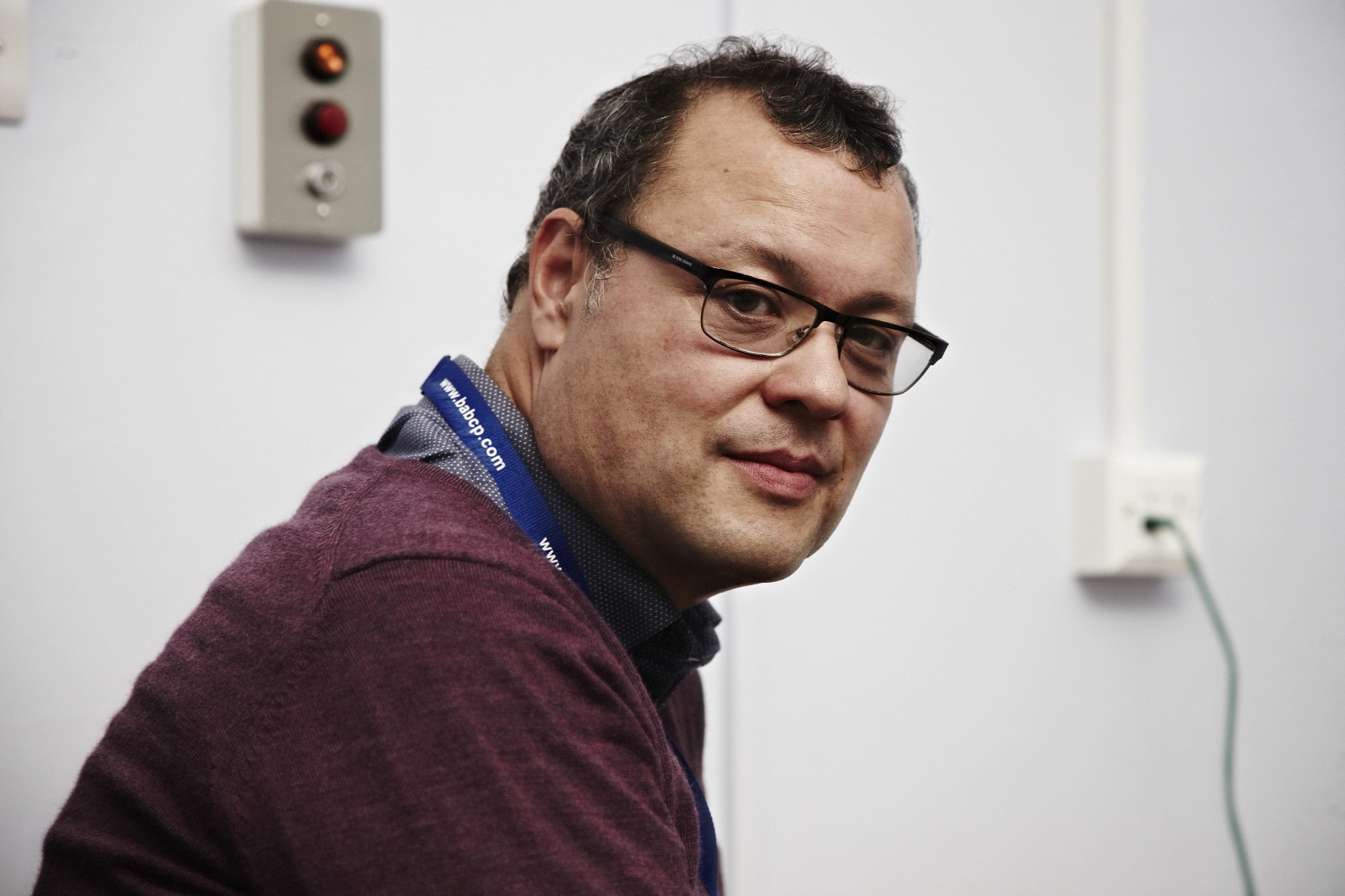 The last time we saw James, he was leaving Bedlam behind - “entering a good dream” was how he described it. Keep your fingers crossed. The film’s closing musical track, “I Don't Want to Die (In a Hospital)”, pushed right to the edges of irony: we can only hope that its participants still have something like a sense of humour left, and that it may help them to go on winning through.
The last time we saw James, he was leaving Bedlam behind - “entering a good dream” was how he described it. Keep your fingers crossed. The film’s closing musical track, “I Don't Want to Die (In a Hospital)”, pushed right to the edges of irony: we can only hope that its participants still have something like a sense of humour left, and that it may help them to go on winning through.
Bedlam isn't going to be an easy watch: next week’s episode is themed around “Crisis”, where among others we encounter Dominic, a real “there-but-for-the-grace-of-God” case of someone catapulted from middle-class family contentment into suicidal territory. After that it’s “Psychosis”, about living with troubles like these within the community, and then the series closer “Breakdown”, about the old and mental illness. They're issues we find around us all the time: it's good that television pays serious attention. At least occasionally, between repeats of Obsessive Compulsive Cleaners.

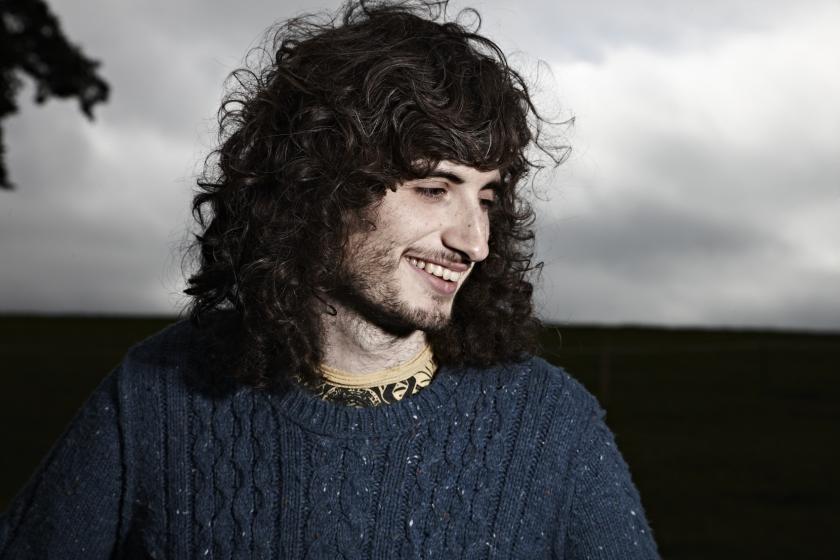
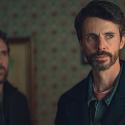


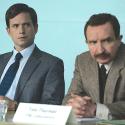








Comments
Add comment